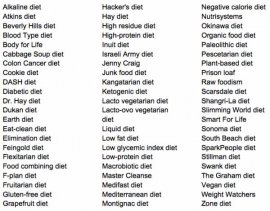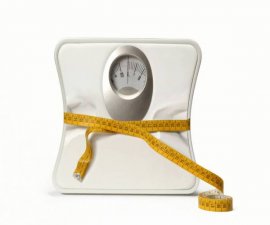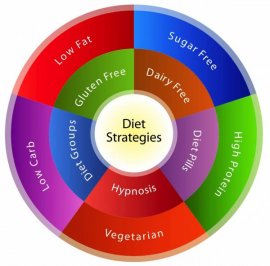
 Let’s set the record straight from the outset: the goal of any weight loss, pound-shedding, “trimming, ” or whatever-you-label-it program is body FAT loss, not necessarily scale-weight loss. So, bubble-wrap your weight scale and put it in the basement or attic and focus on your body composition: the fat to muscle ratio.
Let’s set the record straight from the outset: the goal of any weight loss, pound-shedding, “trimming, ” or whatever-you-label-it program is body FAT loss, not necessarily scale-weight loss. So, bubble-wrap your weight scale and put it in the basement or attic and focus on your body composition: the fat to muscle ratio.
Opinions abound on the best way to lose body fat. For those seeking a special diet, check out the partial list of what’s out there:
No wonder many are confused. Which one is the easiest to follow? Which one is financially affordable? Which one is the most effective? Ultimately, which one will help me lose fat? Yikes. I am not a Registered Dietician so I cannot offer you specific advice on what you should be consuming. I will, however, lay out bits and pieces of some of the most recent issues and arguments in the fat loss world, such as:
- Is a calorie a calorie regardless if it comes from protein, carbohydrate, or fat?
- Regarding the last question, what is better: a high carb/low fat or a low carb/high protein diet?
- What about the glycemic content of carbs and blood sugar levels?
 Calorie Deficit
Calorie Deficit
There is no question that a reduction of calorie intake coupled with high-level energy expenditure results in weight loss (all other factors being equal). But what guarantees the weight loss to be fat only? Consider these facts:1
- It is a long-standing fact that a pound of fat equals 3, 500 calories.
- A pound of muscle renders around 600 calories.
- People with a higher percent of body fat will lose more fat and retain more muscle with a significant calorie deficit.
- People with a lower percent of body fat will lose more muscle and retain more fat with a significant calorie deficit.
Let’s do some math. A 500 calorie deficit per day over one week could result in two outcomes: a loss of one pound of fat (3, 500/3, 500 calories = 1) or a loss of nearly six pounds of muscle (3, 500/600 calories = 5.8).
Obviously, the loss of muscle is not desirable. This is why attention must be paid to the correct calorie deficit based on your existing percentage of fat and your activity level. If you possess a significant amount of body fat, you can probably get away with a larger deficit in the early stages. As you become leaner – or if you are relatively lean to begin with – the calorie deficit needs to be adjusted to preserve lean tissue. This also explains why it is so difficult to shed those elusive few pounds to get completely “ripped.”
 Calories from Proteins, Carbs, and Fats: Is There a Difference?
Calories from Proteins, Carbs, and Fats: Is There a Difference?
Regarding the first law of thermodynamics, a calorie is a calorie. That is, no matter what source it is from, one calorie is the energy required to increase the temperature of one kilogram of water by one degree Celsius. Energy can be neither created nor destroyed. It can only be transformed.
Here’s a little bit of historical science behind the accepted caloric value of protein, carb, and fat in the diet. The past work of Rubner and Atwater is the standard used today. Using a bomb calorimeter to measure the heat of combustion of various proteins, carbs, and fats, they determined the energy density of dietary protein = 4.1 calories/gram, carbs = 4.1 calories/gram, and fat = 9.3 calories. Rounded off, it is 4 calories/gram of protein, 4 calories/grams of carbs, and 9 calories/gram of fat that we currently use (and why many panic when they see fat is more than double in potency).
Past thinking was to eat .7 to 1.0 grams of protein per pound of body weight, load up on the carbs for energy, and minimize the fat. After all, 15 grams of fat has 135 calories and 15 grams of carbs has only 60, so to help shed the pounds, back off on the fat intake. But it’s not that simple. The type of protein, carb, and fat must be considered as well as how the body processes them.
High Carb/Low Fat or Low Carb/High Protein?
A review was conducted that evaluated studies comparing weight loss and energy expenditure in adults consuming high protein and/or low carbohydrate with low fat diets. I believe this is where all the support for low carb diets got its momentum.
The review analyzed nine studies where diets composed of high protein and/or low carbs resulted in a 5.5 pound greater weight loss after twelve weeks as compared to diets of high carbs and/or low fat. However, neither macronutrient-specific differences in the availability of food energy nor changes in energy output could explain these differences in weight loss.If a calorie is a calorie, then what other factors could account for the differences in weight loss between the two diets?
Low carb diets facilitate the loss of glycogen stores and associated water, which can be as great as 4.4 pounds.
INTERESTING VIDEO












